 Open access to peer reviewed publications has been anchored as an underlying principle in the Horizon 2020 and is explained in the Regulation and the Rules of Participation. If you are a beneficiary or hoping to be a beneficiary of a Horizon 2020 grant, you need to be aware of your obligations to publish open access. Below are some of the key points taken from Horizon 2020 guidance which can be accessed in full here.
Open access to peer reviewed publications has been anchored as an underlying principle in the Horizon 2020 and is explained in the Regulation and the Rules of Participation. If you are a beneficiary or hoping to be a beneficiary of a Horizon 2020 grant, you need to be aware of your obligations to publish open access. Below are some of the key points taken from Horizon 2020 guidance which can be accessed in full here.
Are you supposed to deposit?
All Horizon 2020 beneficiaries are required to deposit and ensure open access.
What to deposit
- A machine-readable electronic copy of the published version publisher’s final version of the paper, including all modifications from the peer review process, copyediting and stylistic edits, and formatting changes (usually a PDF document)
OR
- A final peer-reviewed manuscript accepted for publication final manuscript of a peer-reviewed paper accepted for journal publication, including all modifications from the peer review process, but not yet formatted by the publisher (also referred to as “post-print” version).
Where to deposit
Researchers should deposit in a repository for publications of their choice. In order to manage and monitor open access compliance, BU request that all authors publish in our institutional repository (BURO) this can be done easily through BRIAN. Further information on how to do this can be accessed here.
When to deposit
Each beneficiary must deposit as soon as possible. To comply with HEFCEs Open Access policy this should be on acceptance of the article.
 When should Open Access be provided
When should Open Access be provided
Each beneficiary must ensure open access to the deposited publication — via the repository — at the latest: (i) on publication, if an electronic version is available for free via the publisher, or (ii) within six months of publication (twelve months for publications in the social sciences and humanities) in any other case.
For open access publishing, researchers can publish in open access journals, or in journals that sell subscriptions and also offer the possibility of making individual articles openly accessible (hybrid journals). Where the case, the Author Processing Charges (APCs) incurred by beneficiaries are eligible for reimbursement during the duration of the action. For APCs incurred after the end of their grant agreement, a mechanism for paying some of these costs will be piloted. In the case of open access publishing open access must be granted at the latest on publication.
Beneficiaries must also ensure open access to the bibliographic metadata that identify the deposited publication. The bibliographic metadata must be in a standard format and must include all of the following:
- the terms [“European Union (EU)” and “Horizon 2020”][“Euratom” and Euratom research and training programme 2014-2018″];
- the name of the action, acronym and grant number;
- the publication date, and length of embargo period if applicable, and
- a persistent identifier.
In all cases, the Commission encourages authors to retain their copyright and grant adequate licences to publishers. Creative Commons offers useful licensing solutions in this regard (e.g. CC-BY, see Creative Commons Licenses).
In the context of the digital era, the notion of’ publication’ increasingly includes the data underpinning the publication and results presented, also referred to as ‘underlying’ data. Beneficiaries must aim to deposit at the same time the research data needed to validate the results presented in the deposited scientific publications, ideally into a data repository, and aim to make open access to this data. But there is no obligation to do so.
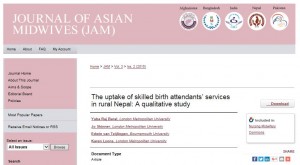 At the very end of December, one more academic paper on maternity care in Nepal from the Centre for Midwifery, Maternal and Neonatal Health (CMMPH). Our latest paper ‘The uptake of skilled birth attendants’ services in rural Nepal: A qualitative study’ was published today in the Journal of Asian Midwives [1]. The paper is co-authored with colleagues from London Metropolitan University, and is the third in a series based on the PhD project of the first author Dr. Yuba Raj Baral [1-3]. The Journal of Asian Midwives is an Open Access journal hence the paper is freely available across the globe.
At the very end of December, one more academic paper on maternity care in Nepal from the Centre for Midwifery, Maternal and Neonatal Health (CMMPH). Our latest paper ‘The uptake of skilled birth attendants’ services in rural Nepal: A qualitative study’ was published today in the Journal of Asian Midwives [1]. The paper is co-authored with colleagues from London Metropolitan University, and is the third in a series based on the PhD project of the first author Dr. Yuba Raj Baral [1-3]. The Journal of Asian Midwives is an Open Access journal hence the paper is freely available across the globe.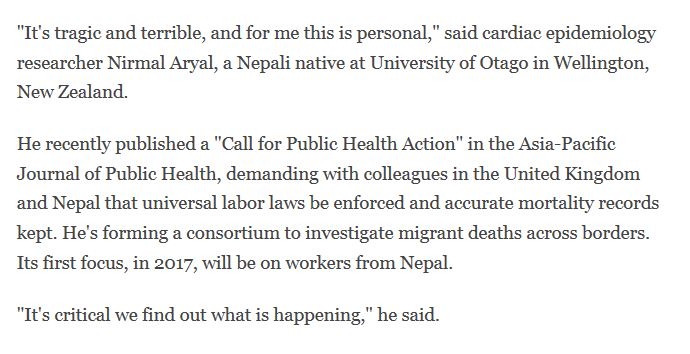
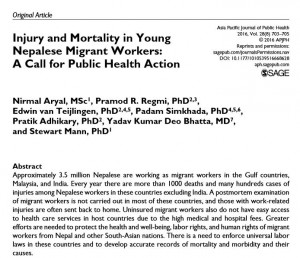
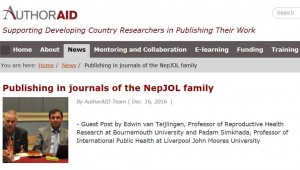
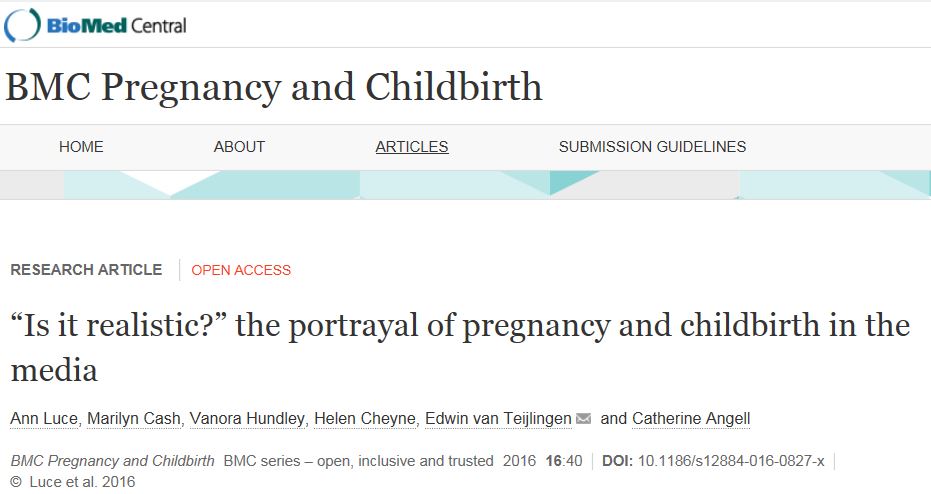
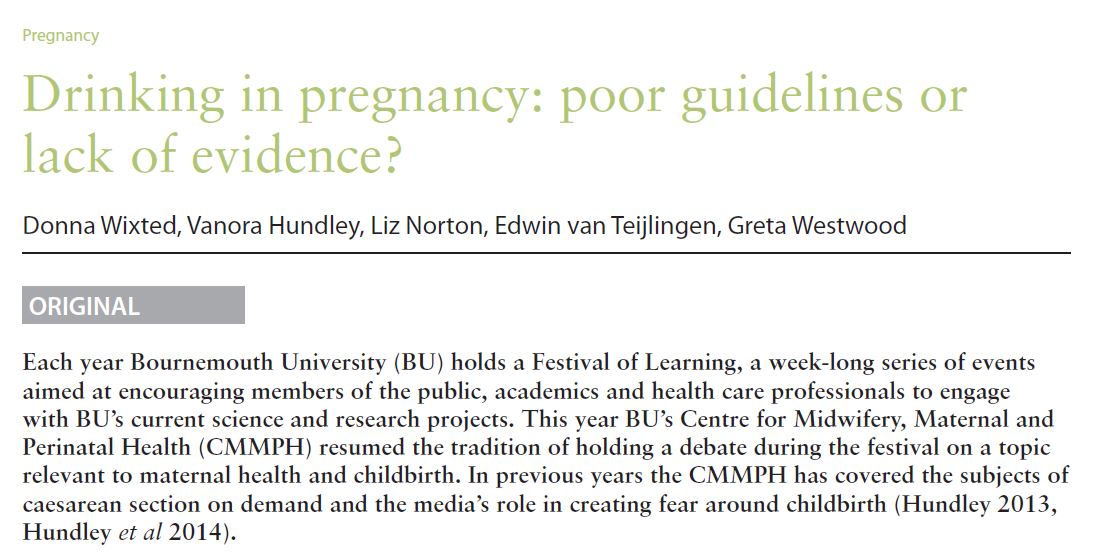
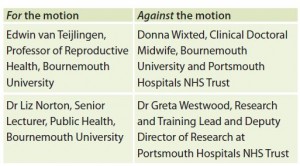
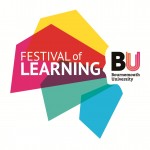
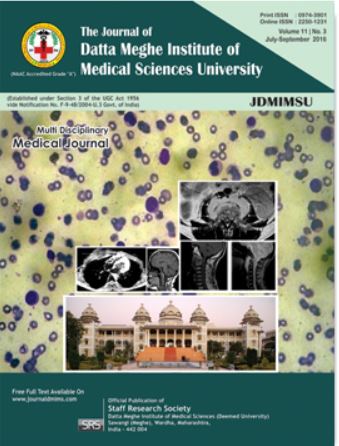
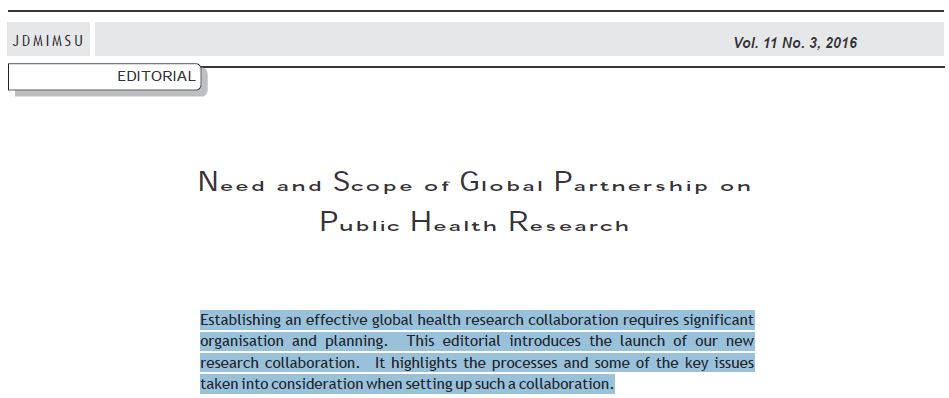
 The next Researchfish submission period will run in February/March 2017. The key dates and policies for the 2017 exercise are detailed below…
The next Researchfish submission period will run in February/March 2017. The key dates and policies for the 2017 exercise are detailed below…
 BU has an agreement with Springer which enables its authors to publish articles open access in one of the Springer Open Choice journals at no additional cost.
BU has an agreement with Springer which enables its authors to publish articles open access in one of the Springer Open Choice journals at no additional cost. 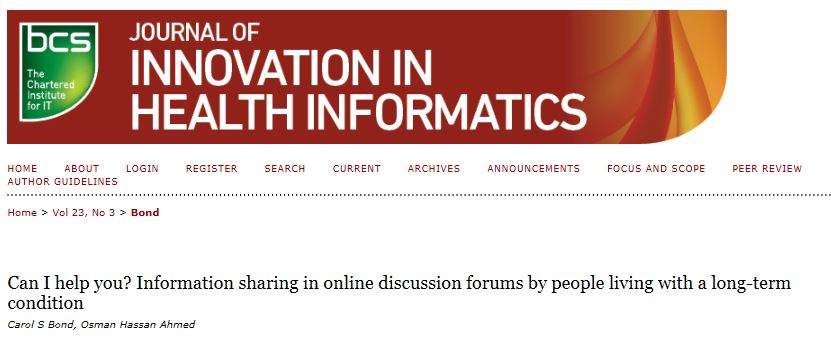

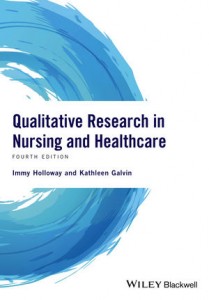
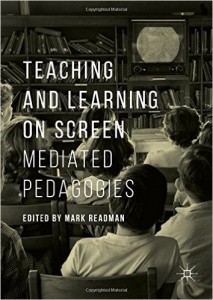
 We’ve been informed by RCUK that the next Researchfish submission period will run in February/March 2017. The key dates and policies for the 2017 exercise are detailed below…
We’ve been informed by RCUK that the next Researchfish submission period will run in February/March 2017. The key dates and policies for the 2017 exercise are detailed below…
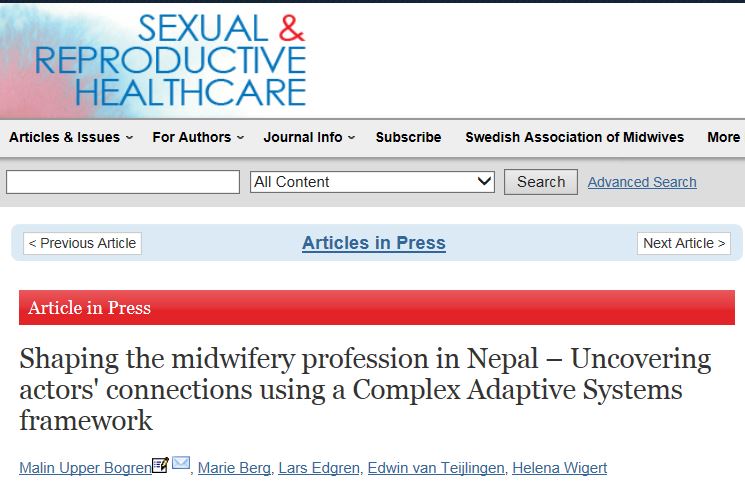
 Open access to peer reviewed publications has been anchored as an underlying principle in the Horizon 2020 and is explained in the
Open access to peer reviewed publications has been anchored as an underlying principle in the Horizon 2020 and is explained in the 










 REF Code of Practice consultation is open!
REF Code of Practice consultation is open! BU Leads AI-Driven Work Package in EU Horizon SUSHEAS Project
BU Leads AI-Driven Work Package in EU Horizon SUSHEAS Project Evidence Synthesis Centre open at Kathmandu University
Evidence Synthesis Centre open at Kathmandu University Expand Your Impact: Collaboration and Networking Workshops for Researchers
Expand Your Impact: Collaboration and Networking Workshops for Researchers ECR Funding Open Call: Research Culture & Community Grant – Apply now
ECR Funding Open Call: Research Culture & Community Grant – Apply now ECR Funding Open Call: Research Culture & Community Grant – Application Deadline Friday 12 December
ECR Funding Open Call: Research Culture & Community Grant – Application Deadline Friday 12 December MSCA Postdoctoral Fellowships 2025 Call
MSCA Postdoctoral Fellowships 2025 Call ERC Advanced Grant 2025 Webinar
ERC Advanced Grant 2025 Webinar Update on UKRO services
Update on UKRO services European research project exploring use of ‘virtual twins’ to better manage metabolic associated fatty liver disease
European research project exploring use of ‘virtual twins’ to better manage metabolic associated fatty liver disease